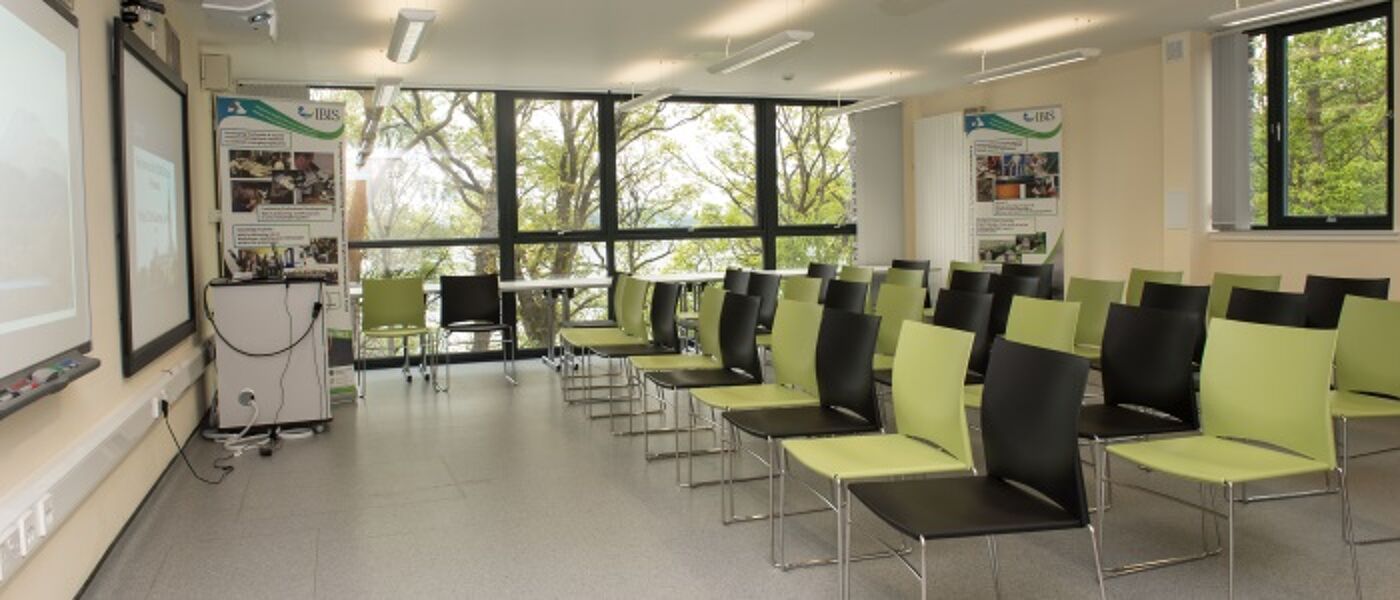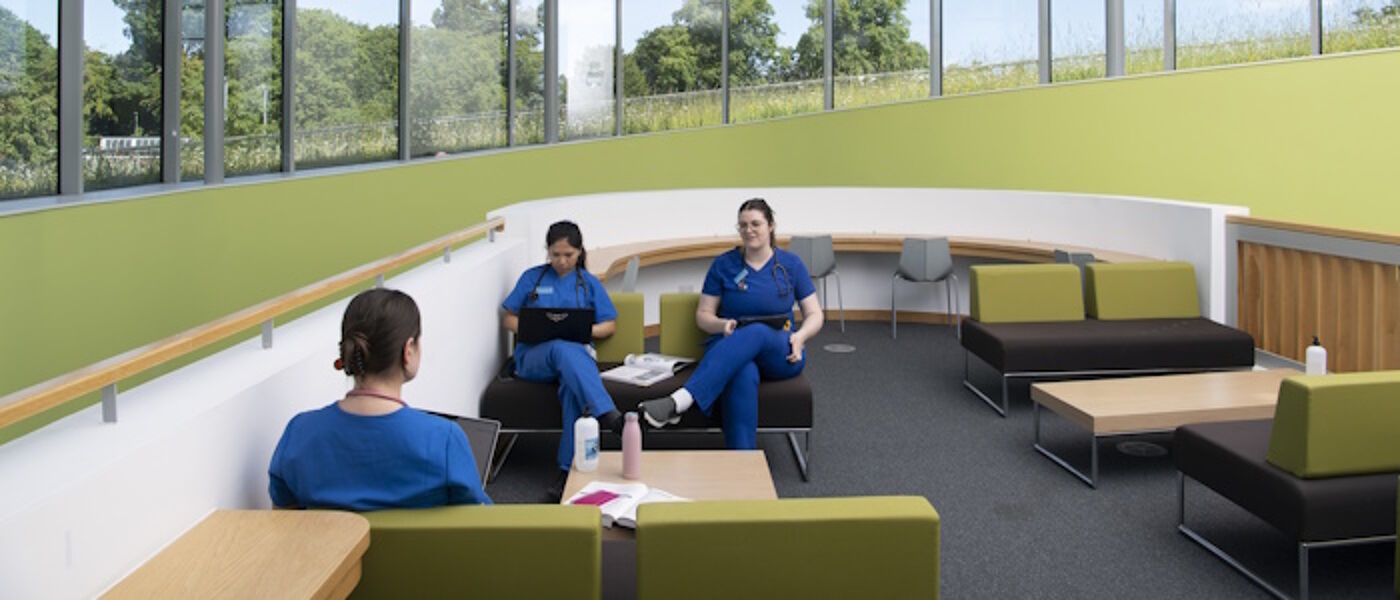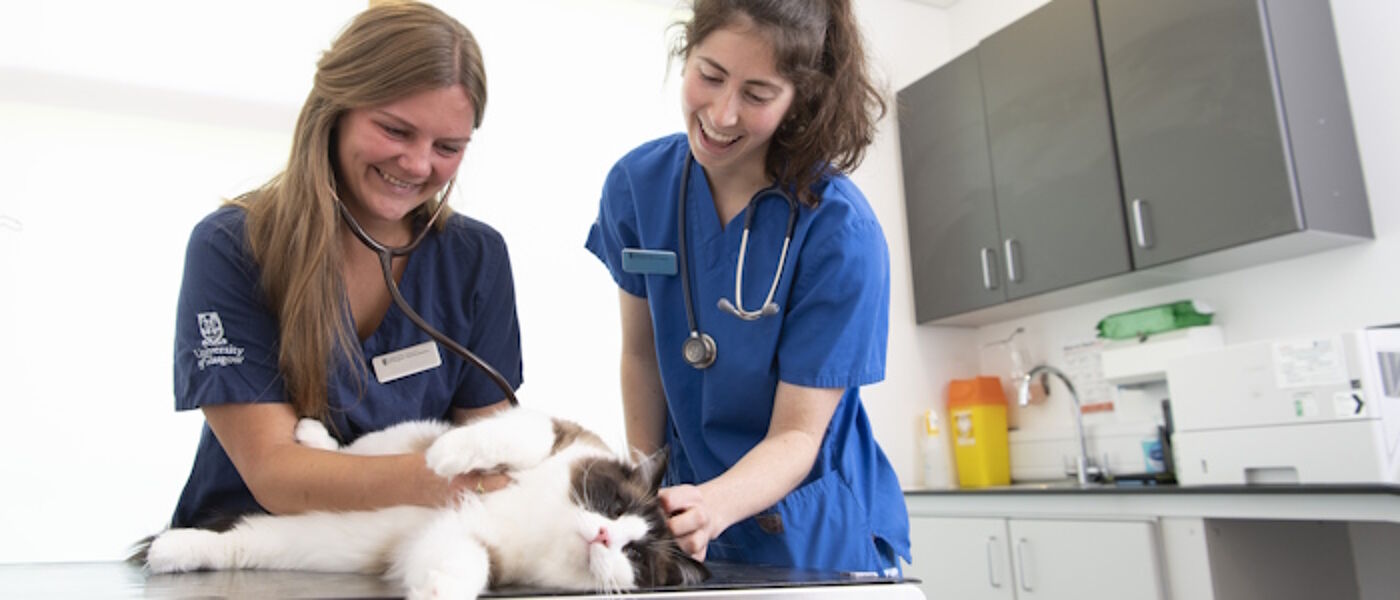Please note that this page is currently under construction
World leading veterinary research
 Glasgow has a long-held and outstanding international reputation in veterinary research, which continues to this day with Glasgow ranking top amongst the UK veterinary schools for research quality in the Research Excellence Framework 2014. This research has been developed in a broader scientific context within the College of Medical, Veterinary and Life Sciences, linking medical and life sciences and facilitating a ‘One Health’ approach to global human and animal health.
Glasgow has a long-held and outstanding international reputation in veterinary research, which continues to this day with Glasgow ranking top amongst the UK veterinary schools for research quality in the Research Excellence Framework 2014. This research has been developed in a broader scientific context within the College of Medical, Veterinary and Life Sciences, linking medical and life sciences and facilitating a ‘One Health’ approach to global human and animal health.
Our strengths
A key strength of our work at the University of Glasgow is our ability to run successful interdisciplinary research. With the formation of the College in 2010, research in veterinary biosciences has been developed primarily within the School of Biodiversity, One Health and Veterinary Medicine. This is complemented by our collaborative research teams in the Institute of Infection, Inflammation & Immunity (IIIs)—incorporating the MRC-University of Glasgow Centre for Virus Research, the largest grouping of human and veterinary virologists in the UK.
Furthermore, our cross-College research centre, the award-winning Boyd Orr Centre for Population and Ecosystem Health, brings together basic and translational research that has had significant impacts on key national and global veterinary health agenda.
Within veterinary medicine our staff lead portfolios of clinical veterinary research in the School's small animal and large animal (equine and production animal) practices and feeds into the world class teaching (ranked 10th in the world) provided by the School.
Our partners
 Beyond the University we have both new and enduring partnerships with key organisations that invest in veterinary research and global health. These include the Moredun Research Institute, APHA - Animal and Plant Health Agency and the Pirbright Institute in the UK, and partners in the Nelson Mandela African Institute of Science & Technology, Tanzanian Wildlife Research Institute and Ifakara Health Institute in Tanzania. With our African partners we also collaborate with the Paul G. Allen School for Global Animal Health, based at Washington State University.
Beyond the University we have both new and enduring partnerships with key organisations that invest in veterinary research and global health. These include the Moredun Research Institute, APHA - Animal and Plant Health Agency and the Pirbright Institute in the UK, and partners in the Nelson Mandela African Institute of Science & Technology, Tanzanian Wildlife Research Institute and Ifakara Health Institute in Tanzania. With our African partners we also collaborate with the Paul G. Allen School for Global Animal Health, based at Washington State University.
Our veterinary biosciences research draws funding from a wide range of sources, including research councils (e.g. BBSRC, Wellcome Trust, MRC, ERC and NERC), government (e.g. DEFRA, Scottish Government, European Union, Bill & Melinda Gates Foundation) and industry (e.g. Merial, Zoetis), with an income between 2013–2020 of over £64 million.
This places us amongst the world leaders in global animal health and the study of the relationships between animal and human health, from the molecular study of infection and immunity through to ecosystems and populations.

Research areas
Research impact
-
02 JulOur Glasgow rabies research team have played important roles in international development, leading directly to major changes in policy, influencing decisions made by government health and veterinary authorities internationally.
-
11 Jul
Enhanced productivity in the egg industry
Research conducted in our Institute has helped the UK egg-laying industry, by driving substantial improvements in productivity and bird welfare. -
11 Jul
Risk-based surveillance and testing defines government policy on bTB
Our research has developed a revised surveillance model for bovine tuberculosis (bTB) that underpins a new Scottish Government policy on bTB testing in Scotland. This has exempted 30% of Scottish herds from routine testing, with savings to Government of £150,000/year and a further £100,000 across the farming industry.




